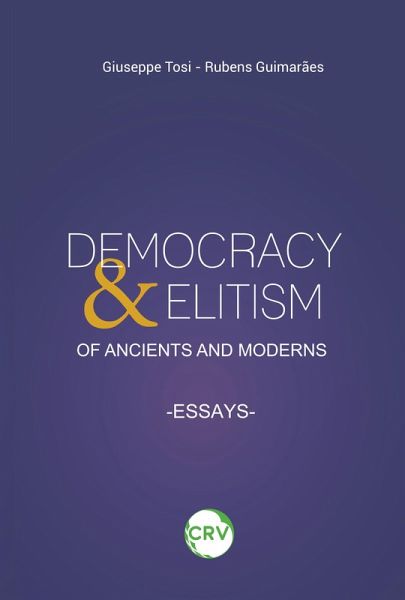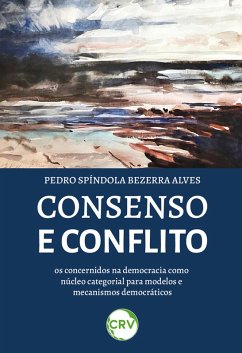
Democracy & elitism of ancients and moderns (eBook, ePUB)
Essays

PAYBACK Punkte
0 °P sammeln!
Democracy is a concept so worn out by intensive use and polysemy of meanings, and at the same time so essential to contemporary political theory and practice, that it deserves to be recurrently revisited and reinterpreted. That's what we want to do in this book, raising some questions and confronting different theories about democracy, without any claim to completeness. Our objective is not to cover the entire discussion about democracy, but to restrict itself to the debate between democracy and elitism. Our central working hypothesis is that a compromise between democratic and elitist theory ...
Democracy is a concept so worn out by intensive use and polysemy of meanings, and at the same time so essential to contemporary political theory and practice, that it deserves to be recurrently revisited and reinterpreted. That's what we want to do in this book, raising some questions and confronting different theories about democracy, without any claim to completeness. Our objective is not to cover the entire discussion about democracy, but to restrict itself to the debate between democracy and elitism. Our central working hypothesis is that a compromise between democratic and elitist theory is possible, through the so-called democratic elitism, which embraces elements of both theories and promotes a synthesis. From this perspective, democracy, realistically, is not the "government of the people, by the people, and for the people", but the government of elites by competing among themselves for popular consensus, to achieve power. This does not mean denying the possibility of popular participation if this is understood not as an alternative to representative democracy, but as its necessary complement. This thesis is developed through a history of the main concepts in dispute: people, elite, government, citizenship, representative, direct, plebiscitary, participatory democracy, which change according to different historical, political, economic and social contexts.
Dieser Download kann aus rechtlichen Gründen nur mit Rechnungsadresse in A, B, BG, CY, CZ, D, DK, EW, E, FIN, F, GR, H, IRL, I, LT, L, LR, M, NL, PL, P, R, S, SLO, SK ausgeliefert werden.













